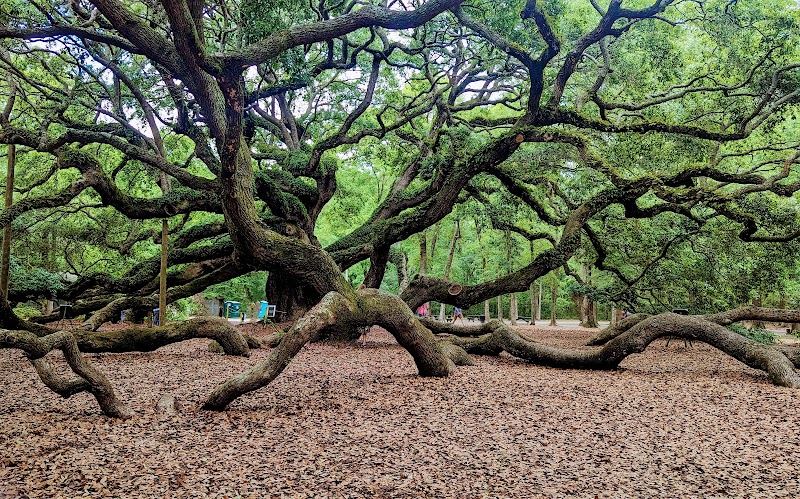
Exploring Charleston’s Rich Past: Top History Tours Near Charleston, South Carolina
Uncover Charleston’s vibrant history through expert-led tours that bring city streets and landmarks to life. Whether it’s walking through historic districts or exploring Civil War sites, these tours offer an accessible and captivating way to experience Charleston’s rich heritage.
Wear Comfortable Walking Shoes
Charleston’s historic district involves cobblestones and uneven paths. Supportive footwear prevents discomfort during extended walking tours.
Book Early Morning Tours
Tours starting before 10 AM offer cooler temperatures and less crowded streets for a better experience and photography.
Stay Hydrated
Charleston can be warm and humid, especially late spring to early fall. Carry water to stay refreshed.
Prepare for Sun Exposure
Bring sunscreen, hats, or light layers to protect yourself on outdoor portions of tours, especially waterfront stops like Fort Sumter.
Exploring Charleston’s Rich Past: Top History Tours Near Charleston, South Carolina
Experience the essence of Charleston’s historic heart with a history tour near Charleston, South Carolina, designed to connect you with over three centuries of dynamic culture and heritage. This city offers more than cobblestone streets and antebellum mansions; it's an invitation to walk the ground where pivotal events and everyday stories shaped a nation.
History tours around Charleston provide a balanced mix of immersive exploration and practical insight into the city’s architecture, cultural landmarks, and pivotal historical moments, including the Revolutionary War, Civil War, and the legacy of Gullah culture. Choose from guided walking tours, carriage rides, or boat tours to explore iconic sites such as Fort Sumter, the Battery, Rainbow Row, and Old Slave Mart Museum.
Visiting Charleston means stepping into an environment fiercely itself: streets that whisper tales, buildings that guard secrets. These tours are tailored for all adventurers—whether you're new to history or a seasoned enthusiast—offering clear pathways and accessible schedules to fit your travel plans.
When booking a history tour, prioritize timing—early morning tours often deliver cooler temperatures and clearer light for photography. Comfortable shoes and weather-appropriate gear make the experience seamless, whether you're maneuvering historic streets or stepping aboard a harbor cruise.
Keywords including “history tour Charleston SC,” “historic Charleston walking tour,” “Civil War tours Charleston,” and “Gullah heritage tours Charleston” help guide you to the most relevant, well-reviewed experiences. These keywords ensure you find tours that are not only captivating but also professionally curated with strong local knowledge.
For those eager to extend their adventure, Charleston offers a host of related trips. Explore outdoor excursions like kayaking through tidal marshes, cycling historic neighborhoods, or walking nature trails in nearby parks—each designed to complement the city’s deep historical roots with the vibrant natural world surrounding it.
Discover history where every corner, every brick, steps forward to meet you.
Nearby Trips
All Adventures
Boat Charters
Water Activities
Adventures near Charleston, South Carolina
Discover the unique and memorable adventures that make Charleston, South Carolina special.
Frequently Asked Questions
What makes Charleston’s history tours unique?
Charleston’s history tours stand out because they blend well-preserved architecture, significant historic events from the colonial era through the Civil War, and rich African-American cultural heritage, including Gullah traditions, all within a compact, walkable city.
Are history tours accessible for families and children?
Yes, many history tours in Charleston offer family-friendly options tailored to all ages, with interactive storytelling that keeps children engaged alongside adults.
Can I combine a history tour with outdoor activities?
Absolutely. Charleston’s history tours often complement nearby outdoor activities, such as kayaking in tidal marshes or biking historic districts, letting you expand your adventure beyond the city streets.
What is a lesser-known historic site to visit during a tour?
The Old Slave Mart Museum offers a powerful perspective rarely highlighted in mainstream tours, providing important context on Charleston’s complex history with the transatlantic slave trade.
When is the best season to take a history tour in Charleston?
Spring and fall are considered the best seasons due to milder temperatures, lower humidity, and fewer crowds, which make walking tours more comfortable and enjoyable.
Are guided tours better than self-guided tours in Charleston?
Guided tours offer local insights, personal anecdotes, and contextual depth that self-guided tours may lack, especially in a city as layered as Charleston. However, self-guided options provide flexibility if time is limited.
Recommended Gear
Comfortable Walking Shoes
Supportive shoes are essential for navigating Charleston’s historic streets and cobblestone paths safely.
Water Bottle
Stay hydrated during warmer months when humidity and heat intensify walking tours.
Light Rain Jacket
Handle unexpected spring showers and keep your tour uninterrupted with a packable rain jacket.
Sun Protection (Hat and Sunscreen)
Shield yourself from sun exposure during outdoor parts of the tour, especially at waterfront sites like Fort Sumter.
Local Insights
Hidden Gems
- "Magnolia Cemetery’s historic graves and peaceful walks"
- "The Battery promenade at sunset offers dramatic coastal views"
- "The tucked-away St. Michael’s Church graveyard with unique colonial-era headstones"
Wildlife
- "Snowy egrets and blue herons commonly spotted near waterways"
- "Occasional sightings of otters along tidal creeks"
- "Migratory birds during fall and spring through the Charleston area"
History
"Charleston served as a critical port city through multiple wars, and its Gullah community preserves African cultural roots. Many historic homes have survived wars and natural disasters, offering remarkable insight into colonial and antebellum life."